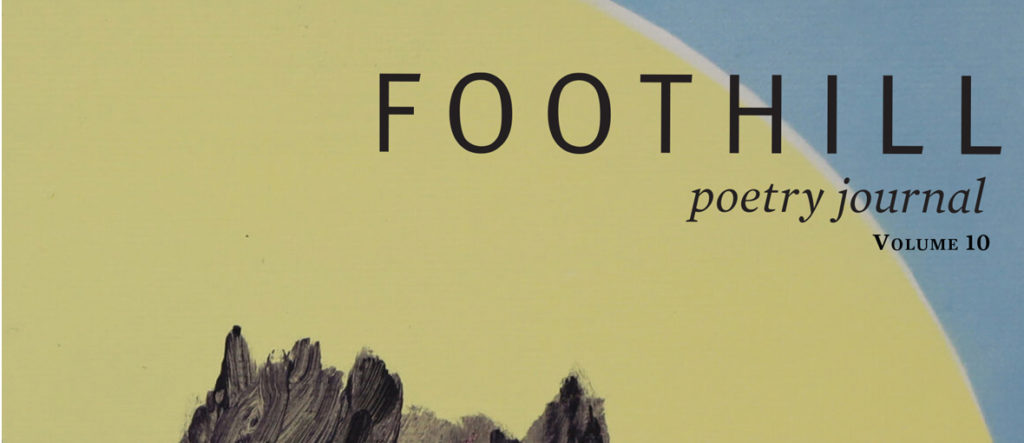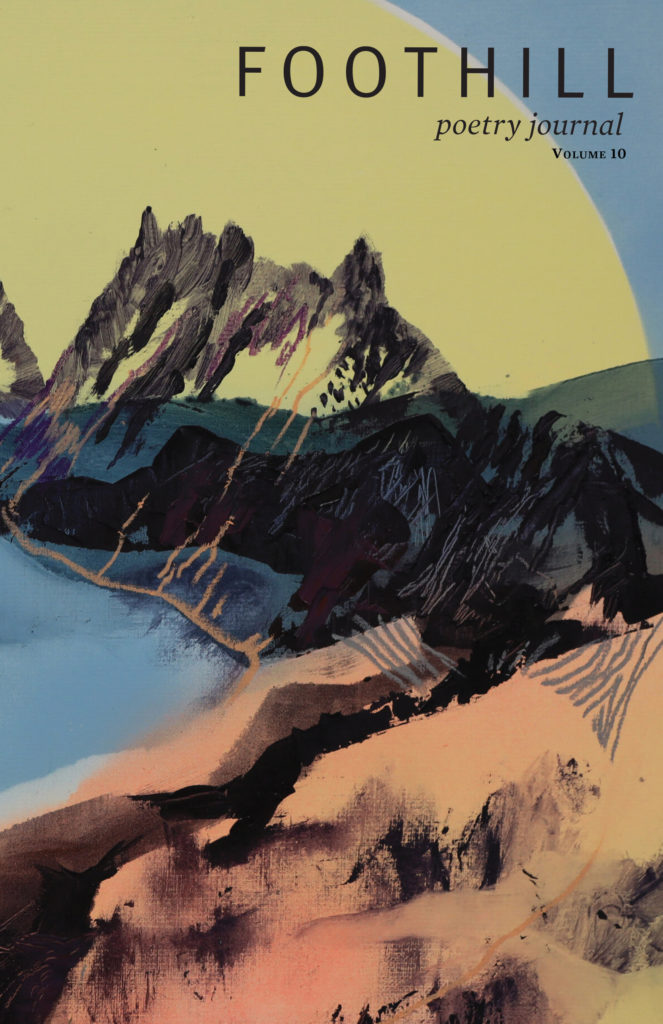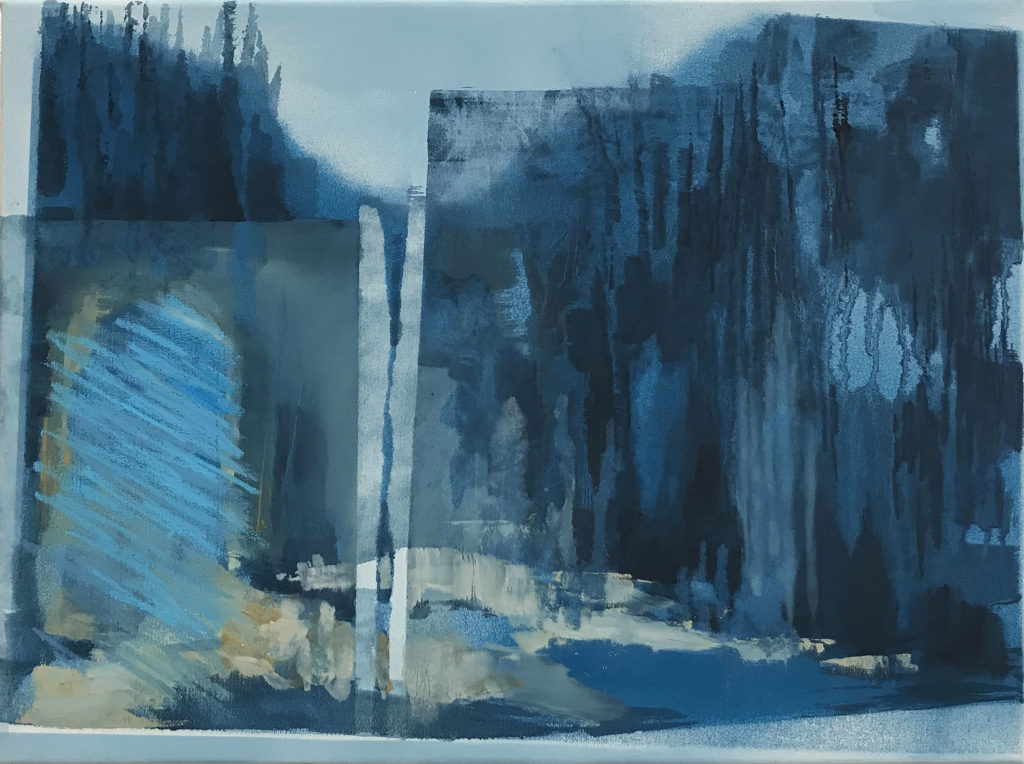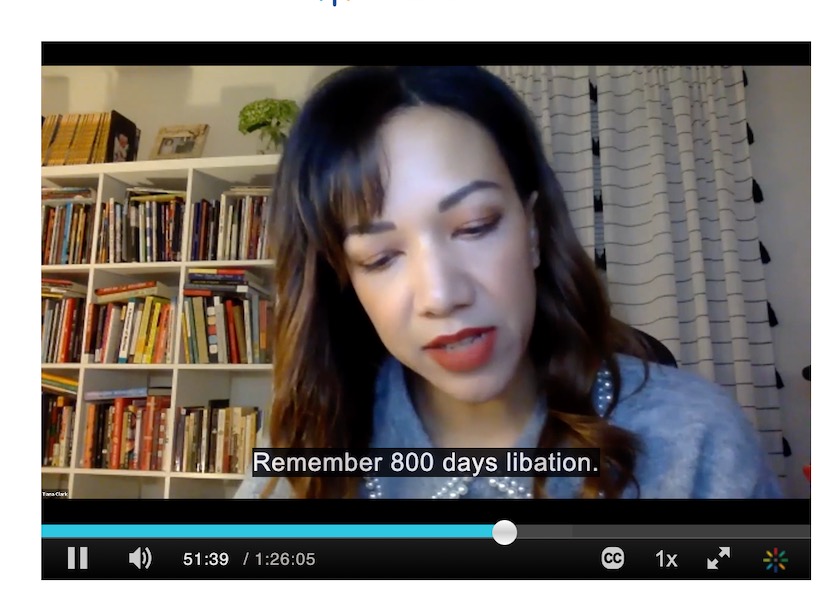A Virtual Welcome to Foothill Volume 10

The semester is wrapping up here at CGU, which comes with a frenzy of writing papers, as well as a chance to look back on the last few months/year of work and applaud one another’s accomplishments. On December 5, we celebrated the publication of the twelfth issue of Foothill Poetry Journal with some beautiful readings, thoughtful questions, and a bit of wistfulness for years past when this event could be held with appetizers and wine and poets and poetry lovers in one room. The journal launch party looked a quite different due to, well, the conditions of our current reality, but nonetheless, our little virtual space overflowed with powerful words and offered a welcome chance to see faces outside of the walls of my apartment.
Visit the Foothill website to watch the zoom recording of the event and read a digital version of the new issue!

In spite of the physical distance, our artists created a space in which we could all settle for a couple of hours, and in which their languages could interact and speak to one another. Kaily Dorfman and Erika Luckert, both of whose work appears in Foothill this year, opened the afternoon with a selection of poems which were starkly unique, but which both featured a Honda as a central character or a set piece. Grief was also, perhaps unsurprisingly, a motif of the afternoon. Amanda Mears, who recently completed her MFA at Claremont and whose art is featured in Foothill, homed in on a phrase in one of Kaily’s poems, “the grieving dark” which seemed to speak directly to her painting Night Vision.

An obvious advantage of the online format is that people can participate from anywhere and we get to see everyone’s beautiful backyards scenery or enviable bookshelves. Another unanticipated benefit of Zoom is that we were able to hear Amanda discuss a slideshow of her works, giving context to the inspiration or intention behind them as well as her process. Her painting Wish You Were Here greets the reader as the cover of the Foothill’s twelfth issue, and many of her beautifully abstract and affective landscapes appear in the journal, imbuing the pages with a color and patterns that offer a visual language to accompany and interact with the journal’s text. Mears’s works resist exact interpretation, instead embracing the oscillation between awe and fear, between beauty and scarcity of danger, that are evoked by looking at something like a sunset tinged pink with smog or smoke.
Following Amanda (and much praise and enthusiasm in the Zoom chat) acclaimed poet, Pomona professor, and Foothill interviewee Prageeta Sharma read a selection of prose poems from her 2019 collection, Grief Sequence. The poems Sharma read, the first which takes place in her late husband’s hospice room, the second at his memorial, dealt with some of the incomprehensible feelings and events that accompany death and grief, and as she said “unsettle all the grieving.” The question of what the elegiac form is able to offer the grieving and the death, the emotions it is incapable of communicating but can nonetheless evoke, feels urgent to me right now, at the end of year that has been marked by death, as a looming threat, an unexpected shock, and a daily reality.
Despite the strange separation of the digital landscape, communal listening can create a collaborative experience. Sharma’s rumination on the ongoing process of mourning a loved one inspired 2020 Kate Tufts Discovery award winner Tiana Clark to enter conversation with her through elegy. Clark read a breathtaking elegy to Kalief Browder, “800 Days: Libation” which you can read and hear a recording of Clark reading here. The story of how teenager Kalief Browder was held and tormented in a maximum security prison, accused of stealing a backpack and refusing to avoid trial by pleading guilty, is documented in the Time: the Kalief Browder Story, which Clark opens this poem saying she is unable to watch. Rather, this poem confronts the boy’s life that mattered and that was lost. It wrestles with the impossibility of accounting for the relentlessness of Black death in this country and the persistent cruelty that threatens to overwhelm Black life and saturates the land of the United States.
& Kalief your name is drizzling
a type of grief upon my mouth like mist as it reigns
inside me it is raining inside my body the rain falls in sheets
inside all the rain is untangled & not touching
who touched you with tenderness falling inside
& Kalief
what is there to say
after so much rain?
The ground is swollen with your name . . .

Clark also read a selection of poems from her chapbook, Equilibrium as well as the collection that won this years Kate Tufts prize, I Can’t Talk about the Trees without the Blood. After much meditation on and discussion of grief, Clark reminded us all of the radicality of indefatigable joy and pleasure in the face of tragedy. She sent us off with a “Indeed Hotter For Me Are the Joys of the Lord,” an expansive poem about resolutely claiming space for oneself, one’s movement and for one’s pleasure.
Who has the audacity
to take up this much space?
I can make a long poem too
and not say sorry for me,
myself.
I’m so grateful to these poets for creating this space in language, both over Zoom and on the page, and especially grateful for all of the effort that people have been putting in to creatively make the best of a profoundly weird time. This long poem, like Mears’s large canvases, Sharma’s extended grief, Luckert’s journeying speaker, and Dorfman’s dynamic dreams; offer opportunities to move and gather in spaces of language and imagery, to witness pain, and to rejoice in each other’s pleasure.
—Lilly Fisher
Share